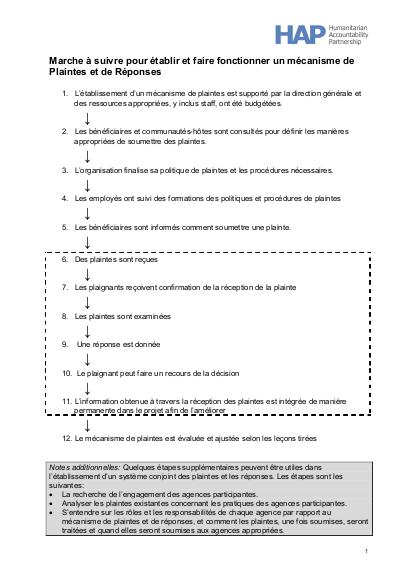
Receiving feedback and responding to complaints from stakeholders is an important part of improving NGO accountability. Ensuring that our stakeholders, in particular beneficiaries and those living in the communities where we work, can hold us to account will improve the quality of our work in all areas of activity.
The difference between complaints and feedback - A complaint is a formal expression of dissatisfaction or discontent, and/or misconduct, about someone or something. For NGOs complaints may be about the NGO’s activities, and staff/volunteers. Feedback may be a positive or negative informal statement of opinion about someone or something – an opinion shared for information but not with the intention of lodging a formal complaint. A complaint requires a response where as feedback does not.
The right to complain and the right to receive a response – beneficiaries and community members living in the area where NGOs are working have a right to raise complaints about the activities and actions of the NGO, and have the right to receive a response.
Joint Complaint and Response Mechanisms (JCRM) – a JCRM provides a specified number of channels through which beneficiaries and community members can complain about the activities of two or more NGOs. From the perspective of beneficiaries and community members a JCRM is considered more ‘user-friendly’, compared to each NGO setting up independent mechanisms. By working together in setting up a JCRM participating agencies are aiming to increase beneficiary satisfaction and improve ways of working in the camp.
